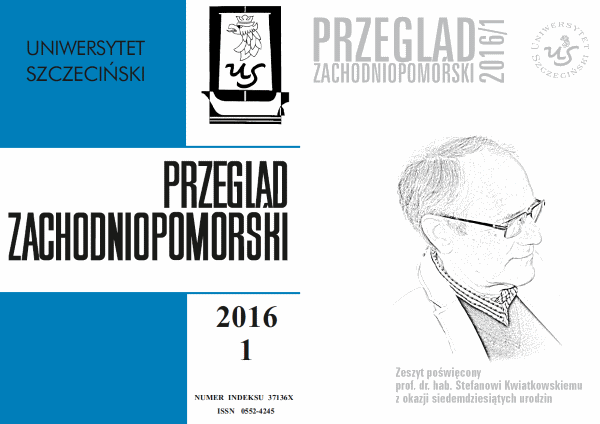Zabiegi o zmianę ordynacji wyborczej rady miejskiej w Lublinie w ostatnim ćwierćwieczu XV wieku
Efforts to change the elections statute of the town council in Lublin in the last quarter of the 15th Century
Author(s): Ryszard SzczygiełSubject(s): History, Political history, Middle Ages, 15th Century
Published by: Wydawnictwo Naukowe Uniwersytetu Szczecińskiego
Keywords: town council; Medieval Lublin; the regime of towns
Summary/Abstract: In Lublin in the 15th century the town council was elected by a college composed of a hereditary alderman and representatives of the town’s citizens and of the people who lived in the suburbs of Lublin. The same century saw a conflict between them and the hereditary aldermen who represented the Cracow patriciate and were not interested in the development of Lublin. In the third quarter of the 15th century the Lublin town council supported by numerous groups of burghers and King Kazimierz Jagiellonian deprived the (hereditary) alderman of any influence on the economic life of the town and the election of the judicial alderman and town council’s judicial clerks. In 1487 there wasa conflict between the King and the town council of Cracow; and there was an attempt to take advantage of that conflict and to deprive the hereditary alderman of his participation in the election of town councillors. However, that attempt failed, which was the result of the decision of the Royal Commission and the King himself. The electoral college was expanded by two members: the starost (also: starosta, an old leader in Slavic countries) and the voivod (also: voivode/vaivode, a military commander/governor of a town/ province in various Slavic countries). It was not a success of the Lublin elite of power, whatsoever.
Journal: Przegląd Zachodniopomorski
- Issue Year: 31/2016
- Issue No: 01
- Page Range: 249-258
- Page Count: 10
- Language: Polish

